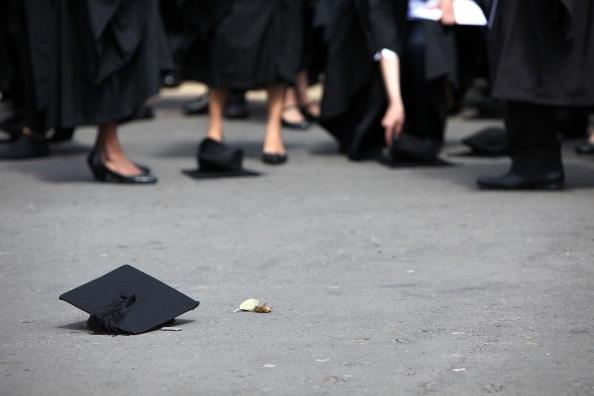Men who attend the country’s lowest-performing universities go on to earn less than those who have not gone to university at all, according to new research.
The Institute of Fiscal Studies’ new findings into graduate earnings have discovered particularly big differences in earnings according to which institution was attended.
Results showed there to be 23 universities where, on average, male graduates were earning less ten years after when compared with the average for non-graduates.
Female graduates from nine of the UK’s lowest-performing universities were found to be earning less than non-graduates too.
Researchers said this is largely down to differences in entry requirements, but that the numbers are “very striking” nonetheless, adding that some very locally-focused institutions may be struggling to produce graduates whose wages outpace England-wide earnings.
The top 10 universities in the UK
Show all 10The study also highlighted big differences in earnings depending on degree subject; those studying the creative arts had the lowest earnings and, on average, earned no more than non-graduates with male creative arts grads taking home around £17,000 (£12,000 for females). Mass communication graduates have also emerged as being among the lowest paid with males pocketing around £20,000 (£15,000 for females).
Those studying veterinary sciences and agriculture-related subjects will see average salaries of just £20,000 for males and around £18,000 for females.
By contrast, for males, around 12 per cent of economics graduates earned above £100,000 ten years after graduation (nine per cent for females), whereas, six per cent of those studying medicine or law earned more than £100,000 (one and three per cent respectively for females).
The research used anonymised tax data and student loan records for 260,000 students - dating back to 1998 - and is the first time “big data” has been used to look at how graduate earnings vary by university, degree subject, and parental income.
On the whole, the study found graduates from richer backgrounds earn significantly more after graduation than their poorer counterparts, even after completing the same degrees from the same universities.
Universities Minister, Jo Johnson, said the Government accepted there was still a long way to go to improve social mobility. He said: “We have seen record application rates among students from disadvantaged backgrounds, but this latest analysis reveals the worrying gaps that still exist in graduate outcomes.
“We want to see this information used to improve the experience students are getting across the higher education sector.”
Subscribe to Independent Premium to bookmark this article
Want to bookmark your favourite articles and stories to read or reference later? Start your Independent Premium subscription today.


Join our commenting forum
Join thought-provoking conversations, follow other Independent readers and see their replies